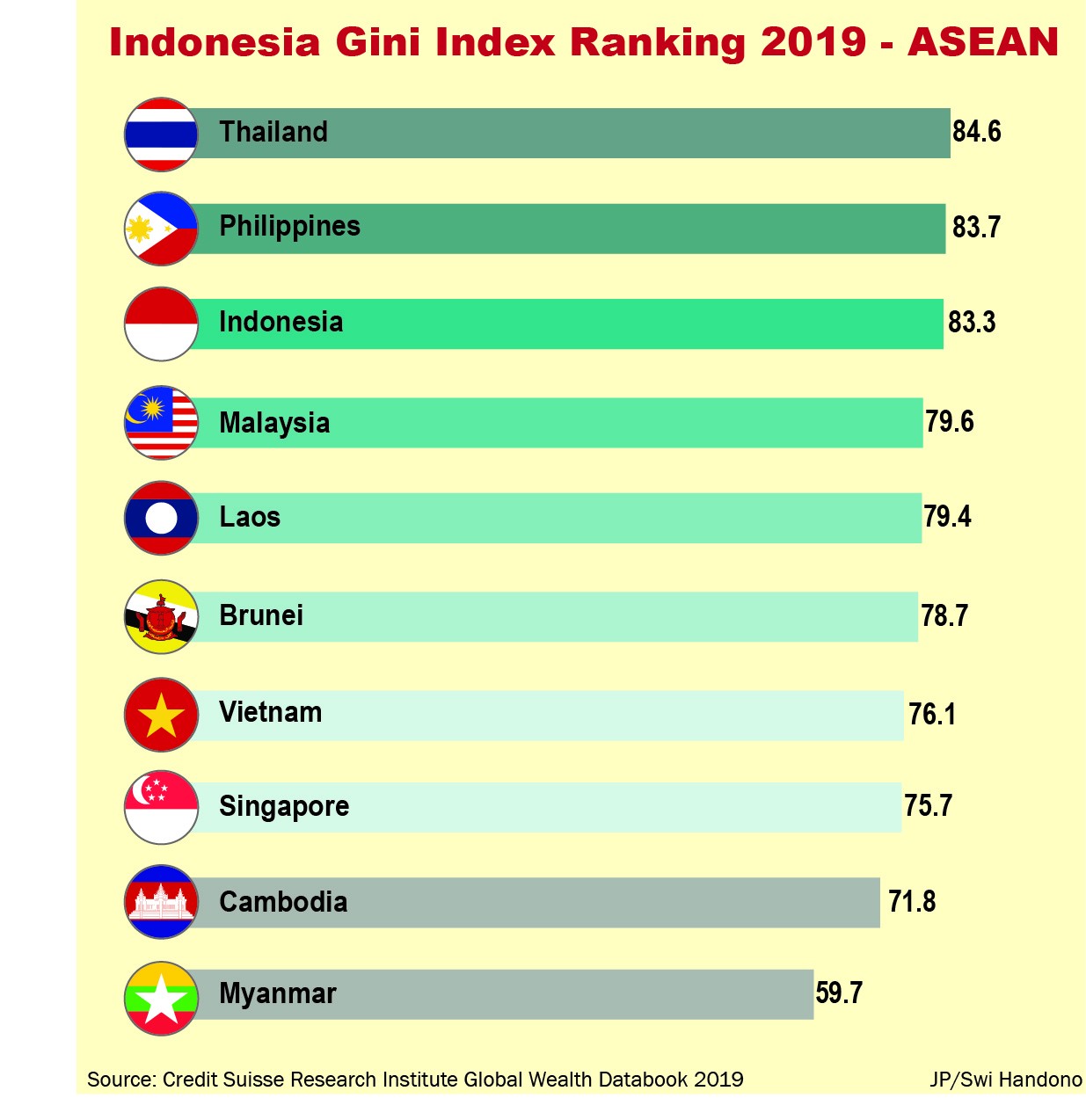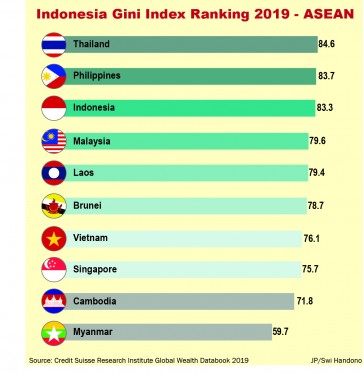Popular Reads
Top Results
Can't find what you're looking for?
View all search resultsPopular Reads
Top Results
Can't find what you're looking for?
View all search resultsInequality overshadows Indonesia's economic growth as millions remain stuck in poverty
“Our study shows that absolute inequality has kept increasing over the years despite a drop in relative inequality."
Change text size
Gift Premium Articles
to Anyone
I
ndonesia’s economic growth of 5.02 percent percent year-on-year (yoy) in the third quarter, although the lowest rate in more than two years, would be a dream come true for many other countries. The global economy will grow by 3.2 percent this year, according to the International Monetary Fund’s forecast.
Not all Indonesians, however, can enjoy their country’s above-average growth, with 25 million still living on less than US$1 per day as of March this year, Statistics Indonesia (BPS) data show. A recent report by the Asian Development Bank (ADB) revealed that 22 million Indonesians endured hunger in the period of 2016 to 2018.
Inequality in Indonesia increased from 2000 to 2016, as reflected in a rising Gini ratio, but has since dropped to a Gini reading of 0.382 as of March this year, according to SMERU Research Institute economic development researcher Ridho Al Izzati. The Gini ratio is a measure of inequality — the higher the number, the larger the gap.
“If we scrutinize the top 10 percent and the bottom 10 percent in terms of income level, the results are disconcerting,” said Ridho.
“Our study shows that absolute inequality has kept increasing over the years despite a drop in relative inequality. This [Gini index drop] happened because [middle-segment] income growth has been faster than growth in other income brackets, yet absolute income growth of the rich remains higher than that of the poor, widening the income gap.”
Indonesia’s top 1 percent still accounts for 45 percent of the country's total household wealth, which is a high figure by international standards, the SMERU report notes.
Additionally, growth has been centered on the island of Java. The National Development Planning Agency (Bappenas) pointed out last year that 60 percent of the country’s economic activity took place in Java, 20 percent in Sumatra and the remaining 20 percent in other regions.


















